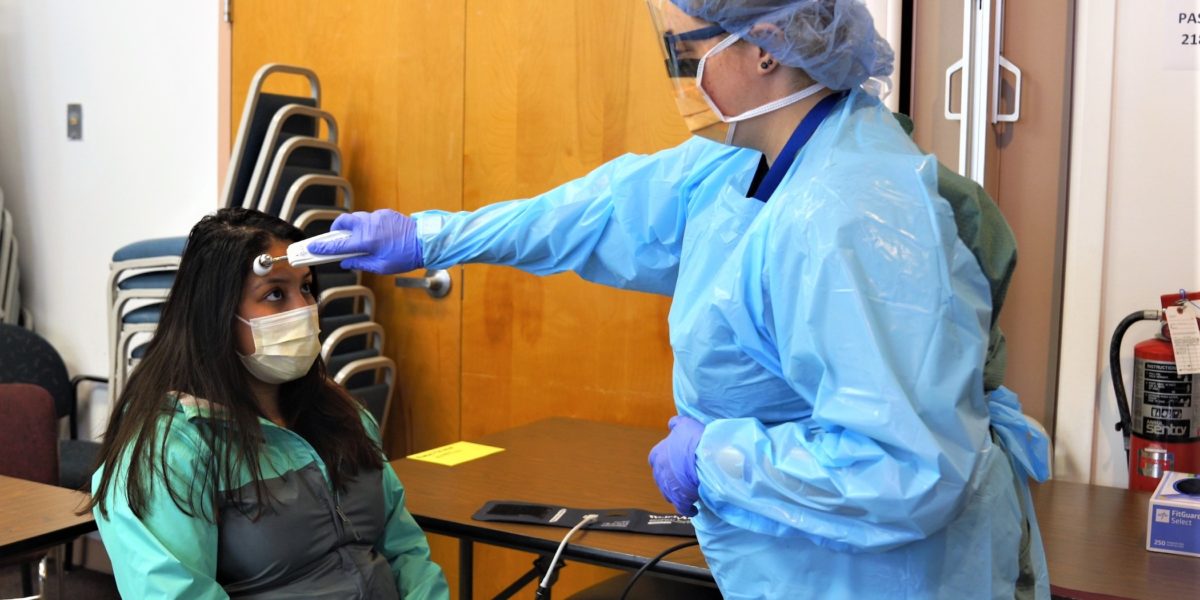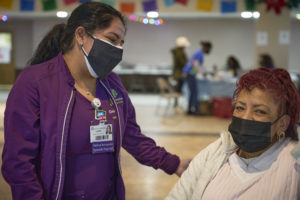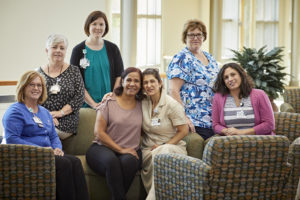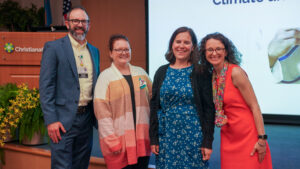| ChristianaCare is working to overcome disparities in COVID-19 testing and increase accessibility through innovative clinics that combine virtual primary care and COVID-19 testing in some of Wilmington’s underserved communities. Sites at the Latin American Community Center and Kingswood Community Center are the first two of a model that ChristianaCare expects to expand to other neighborhoods based on assessments of community need.
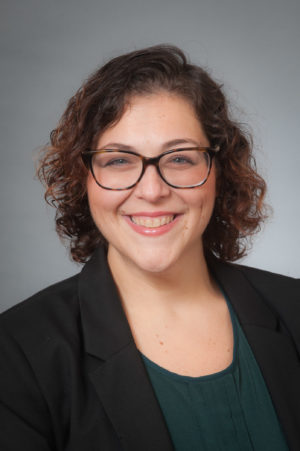 “Globally, there are racial and ethnic disparities related to COVID-19 infection and outcomes,” said Erin Booker, LPC, vice president of Community Health and Engagement at ChristianaCare. “These sites are an important way that we can bring care and testing to our neighbors who may face barriers such as lack of transportation, limited ability to speak English, lack of a primary care provider or other obstacles that prevent them from getting the care they need.” During a screening at one of these sites, patients have their vital signs taken by a nurse or medical assistant on-site before beginning a virtual visit with a doctor or nurse practitioner via an iPad. After the virtual screening, the provider determines if the patient needs to be tested for COVID-19. If so, a nurse or medical assistant performs a nasal swab. Test results return in three to four days, and patients are then notified by phone. Test results are also provided to the Delaware Division of Public Health. “Virtual care is an opportunity for us to meet people where they are and provide excellent and equitable care in trusted community spaces,” said Rose Kakoza, M.D., MPH, clinical director of Community Health and Equity for Primary Care and Community Medicine at ChristianaCare. “Virtual care also allows us to continue to care for COVID-19 positive patients in their homes and connect all patients with primary care providers.” Medical interpreters from ChristianaCare’s Language Services team are available to assist individuals in Spanish or other languages as needed. 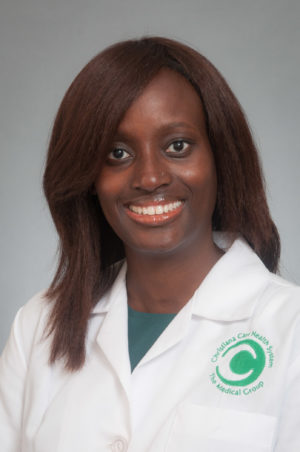 “It’s more important than ever that our caregivers can communicate accurately and completely with patients who have limited English proficiency,” said Jacqueline Ortiz, director of Health Equity and Cultural Competence at ChristianaCare. “Having an interpreter assist in a virtual COVID-19 screening can help relieve anxiety for the patient as well as ensure the correct plan of care and education moving forward.” The Latin American Community Center is at 301 N. Harrison Street. The center is open for screening and testing on Mondays and Fridays from 10 a.m. to 1 p.m. Community members are encouraged to make an appointment before arriving for a screening, but walk-ins are also accepted. For an appointment, call 302-320-6439. “The Latin American Community Center’s partnership with ChristianaCare is invaluable to the well-being of our community,” said Maria Matos, president and CEO of LACC. “We appreciate the constant connection that ChristianaCare has had with the Latino community throughout the years. This commitment made it possible to immediately respond to this critical need.” The Kingswood Community Center is at 2300 Bowers Street. It is open for screening and testing on Tuesdays and Thursdays from 10 a.m. to 1 p.m. Community members are encouraged to make an appointment before arriving for a screening, but walk-ins are also accepted. For an appointment, call 302-428-6586. 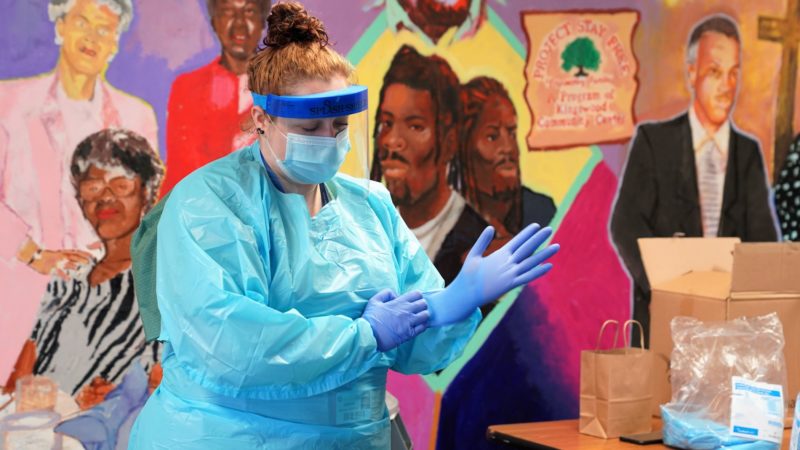 “REACH Riverside is truly grateful to our long-standing relationship with ChristianaCare,” said Logan S. Herring, CEO, REACH Riverside Development Corporation. “For us, it is all about providing access, and any barriers that we can eliminate through strong partnerships, we will. These screenings are important to minimize the impact of COVID-19 on an already over-burdened community, and we trust that the community finds it beneficial as well.” Protection from COVID-19 The best way to prevent illness is to avoid being exposed to the virus. Practice social distancing, wash your hands often, don’t touch your face and use a face mask/face covering if you go out in public. Learn more about COVID-19 prevention and resources. Stay home if you are sick with any of the following symptoms: fever, cough, shortness of breath, sore throat, or digestive symptoms such as vomiting, diarrhea, loss of taste or smell and body aches. If you think you have been exposed to someone with COVID-19, or if you have symptoms of illness, make sure to distance yourself from others, particularly vulnerable populations. Older adults and people of any age with serious underlying medical conditions – including serious heart conditions, chronic lung conditions, including moderate to severe asthma, severe obesity and those who are immunocompromised, including through cancer treatment – might be at higher risk for severe illness from COVID-19. According to the Delaware Division of Public Health, anyone with a question about COVID-19, whether related to medical or social service needs, should call Delaware 2-1-1; or 7-1-1 for individuals who are deaf or hard of hearing; or text your ZIP code to 898-211. Check the Delaware Division of Public Health’s COVID-19 website for current hours of operation.
|
